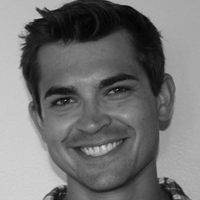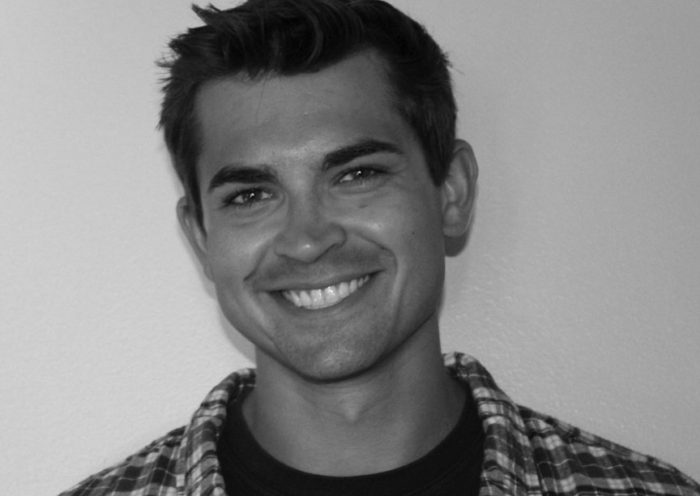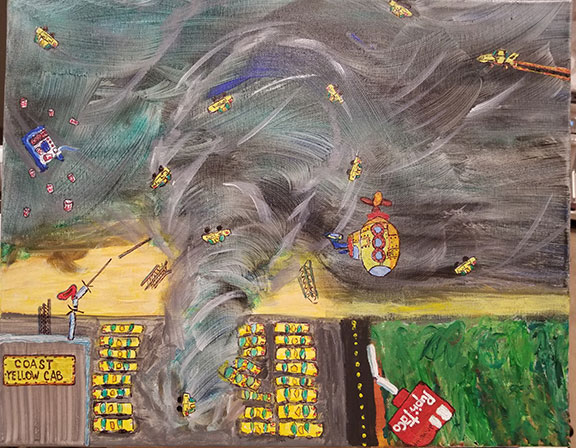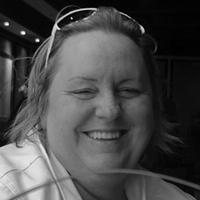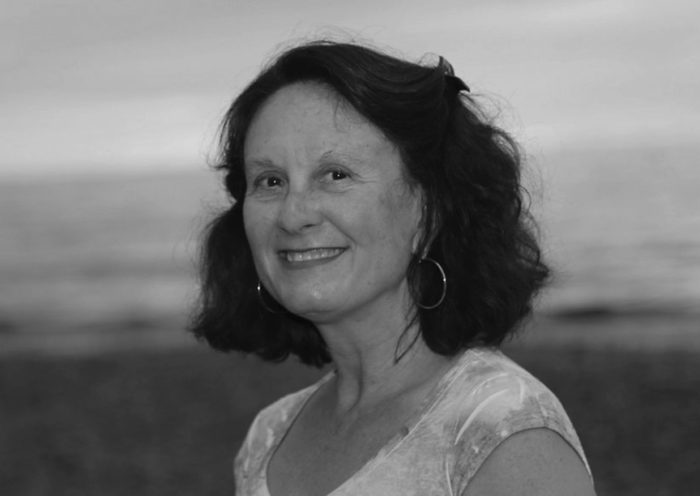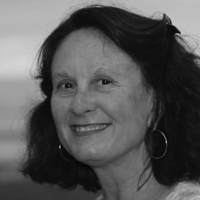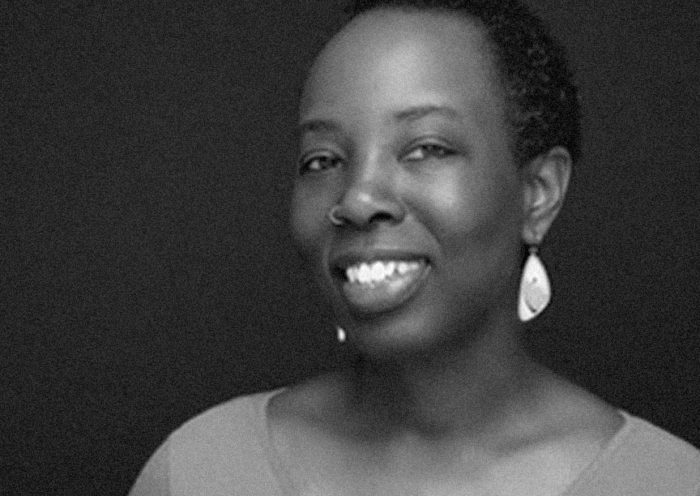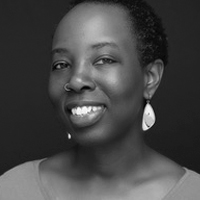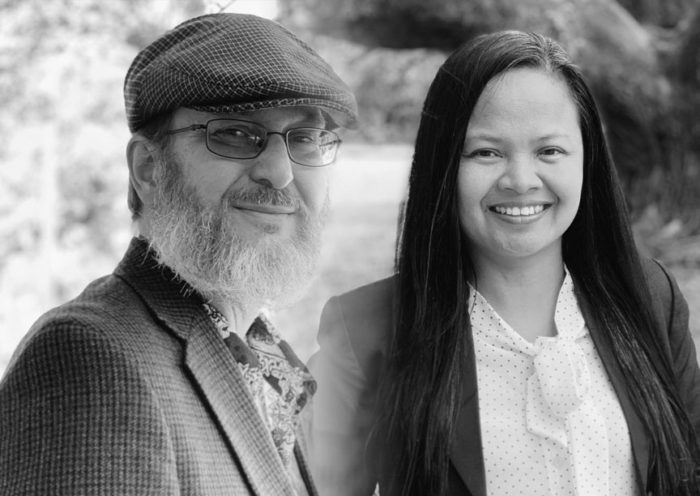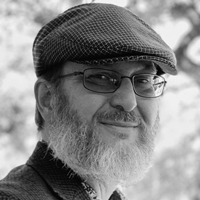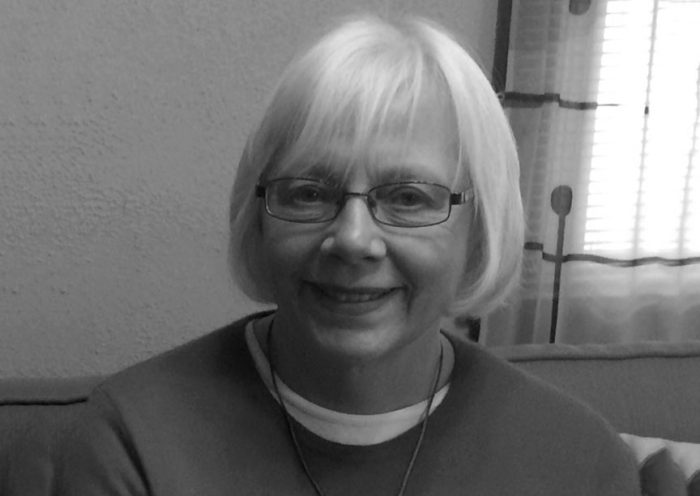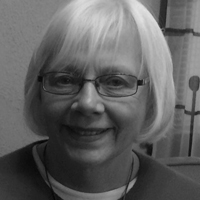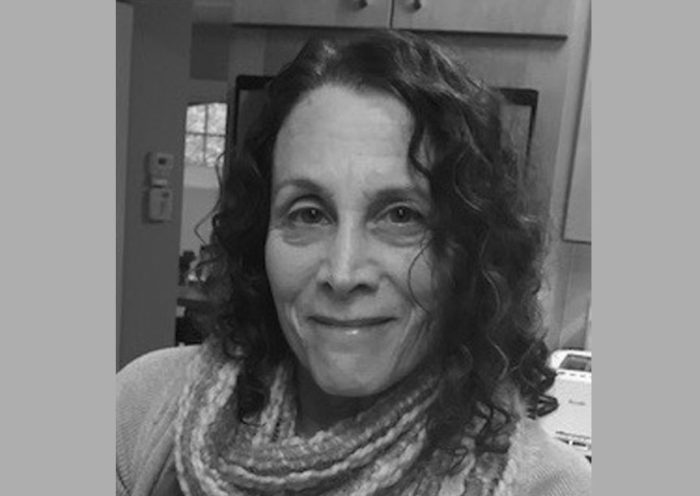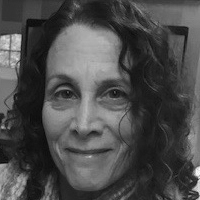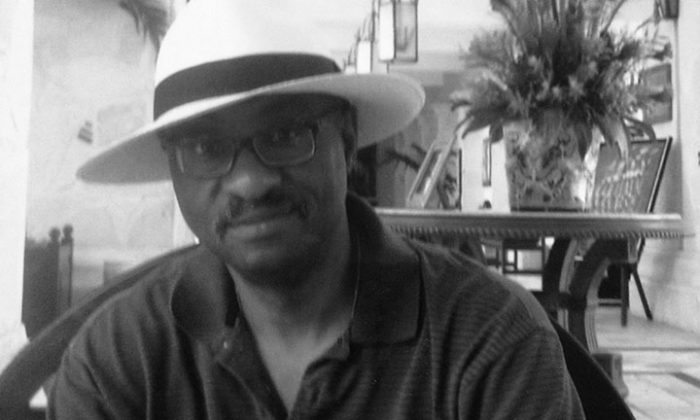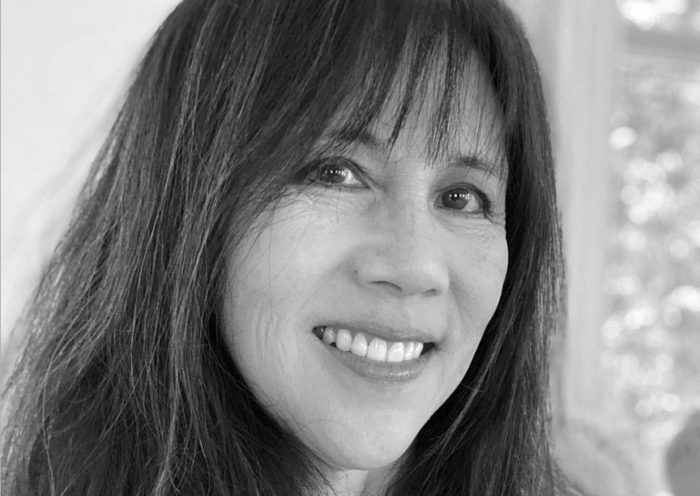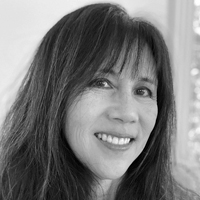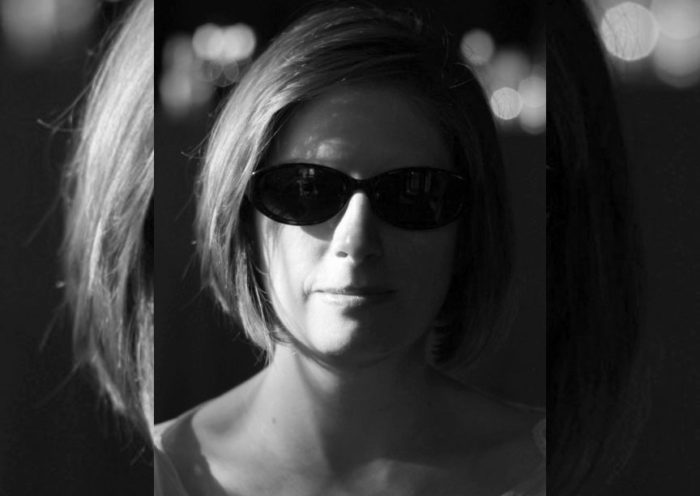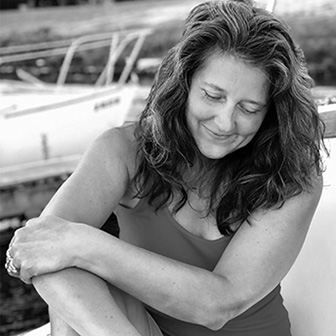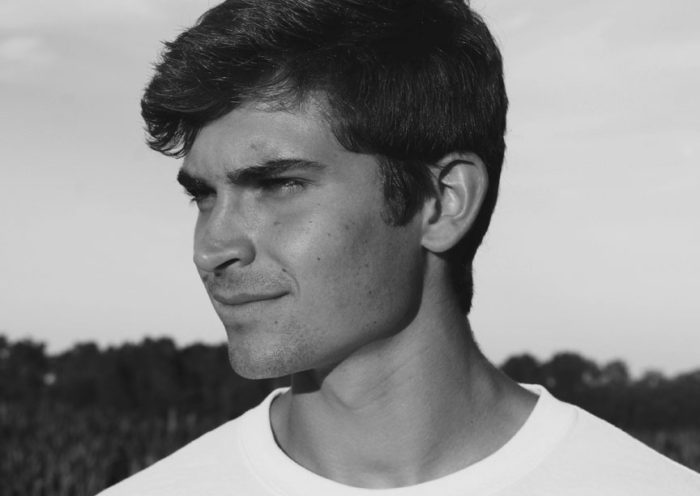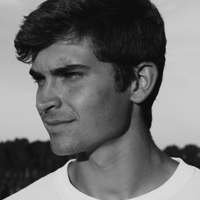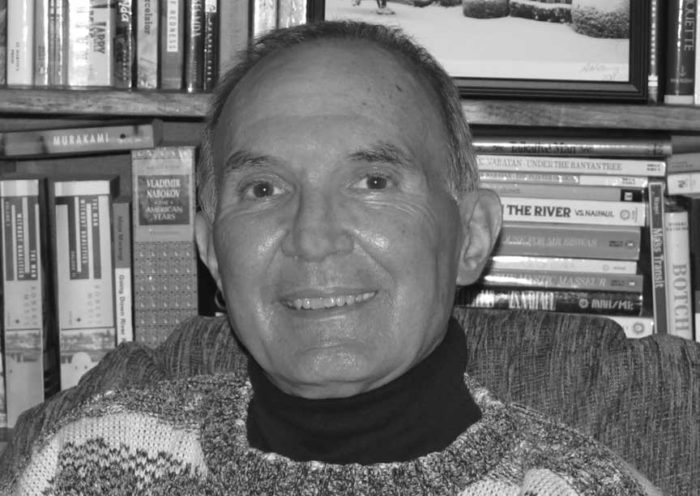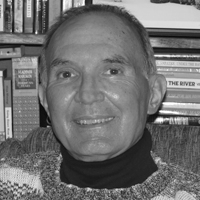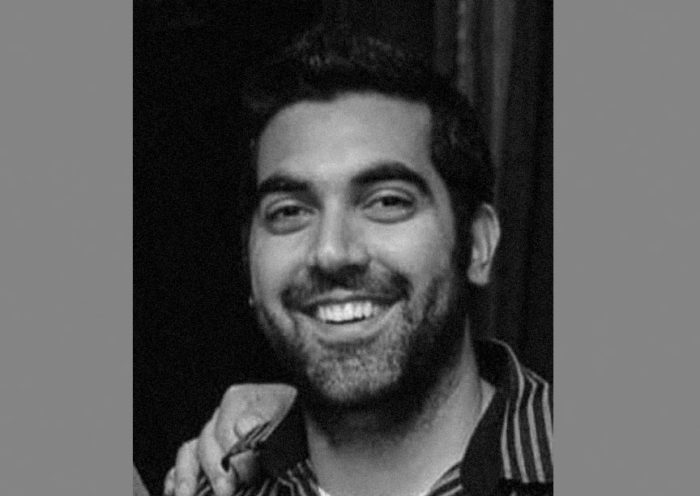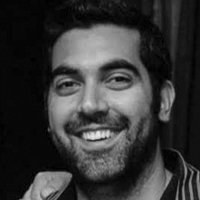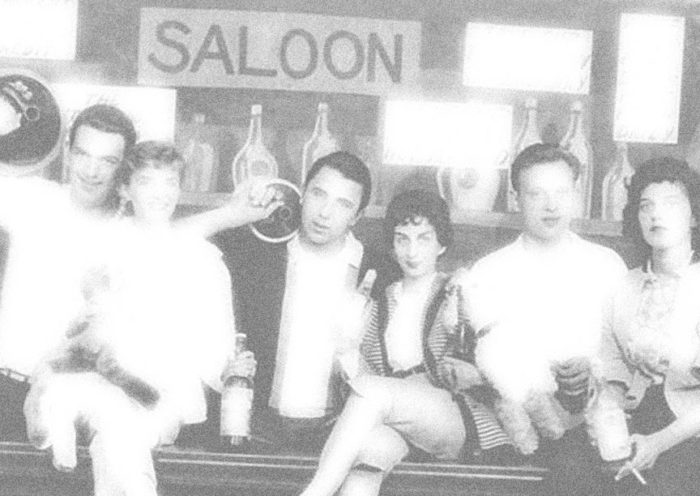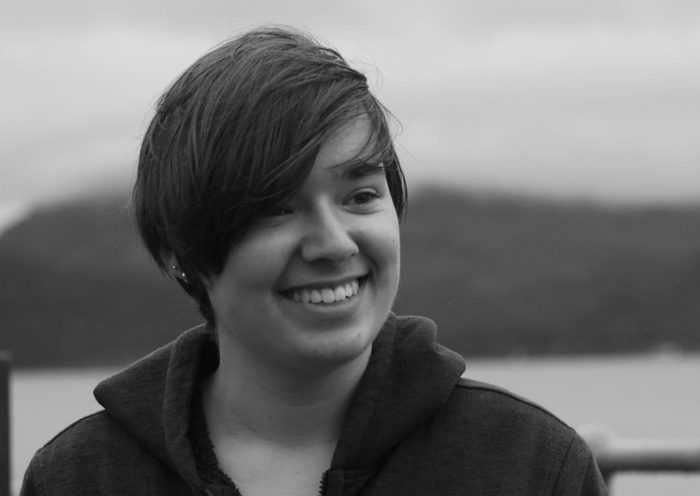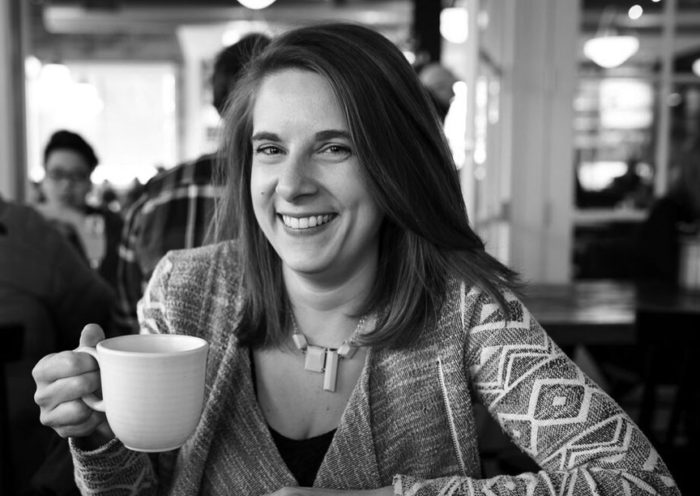The Other Daughter
by Lourdes Dolores Follins
On the Monday after Thanksgiving I was back at work after the long weekend. As a Black, queer, female psychotherapist who mostly works with queer people of color, many of my clients have feelings about seeing—or not seeing—their families for the holidays. I had five sessions scheduled that day and as expected, most clients needed to debrief. Thanksgiving with my sweet, self-centered, and well-intentioned in-laws was as trying as usual, but my wife and I always use the holiday as a bonding moment.
Even though I was well-rested on Monday, by mid-afternoon, I
was halfway through what was turning out to be an emotionally draining day.
Eager for a distraction, I checked my email and noticed this cryptic message:
From: Yida G.
To: Lourdes D Follins
Subject: Re Leon Follins
Hello my name is Yida G., Im a very close friend of your fathers. Please contact me as soon as possibel regarding your father. My number is +13869519216 .
Best regards
Yida G.
Initially, I did not know what to make of the email and was
confused. The formal grammar and typos led me to think it was a scam;
especially since I hadn’t seen or heard from my biological father in twenty-five
years. The last time I saw him was when I was twenty-three years old. Before
that, I hadn’t seen him since I was five years old, when my parents’ divorce
was finalized.
Suspicious New Yorker that I am, I Googled this Yida G. I
found out that she and I were the same age, she was married to a man with a
British surname, and she had a criminal record. With a raised eyebrow, I sent
the following cool response:
Subject:
Re Leon Follins
Hello,
Thank you for reaching out to me. I am in meetings for most of the day every day this week and will not be able to call you until the weekend. Please email whatever you need to share with me about my father.
Wishing you well,
Lourdes D. Follins
I figured if she really knew my father and if something was
really wrong, she’d get back to me. Thirty minutes later, I received a more
straightforward email from someone else:
From: Joseph K.
To: Lourdes D Follins
Subject: Death of Your Father
Hi Lourdes,
I live in Orlando, Florida. I am a friend of Leon Follins, your father. He
told me that in the event of his death, you should be contacted as his only
living child. Please call my cell phone on 407-421-7040.
Thank
you.
Dead? How is that possible? He’s only…sixty-eight, I mused, calculating my father’s age. And why tell me?
Puzzled, I looked up this Joseph K.
While I was searching for information about him, he sent me an identical email,
this time through my business website. So, I called him.
“I’m sorry to tell you that your father died this morning,”
Joseph said. He sounded as if he was telling me that it was going to rain
tomorrow.
I felt a mixture of curiosity and numbness. “Do you know how
he died?” I asked matter-of-factly. I always want to know how people
die—whether it’s due to natural or unnatural causes. It helps me understand how
to respond to people’s grief.
“Oh, I think he died of a heart attack,” Joseph offered. I tried
to place his accent; it reminded me of the Nigerians I’ve met.
“So, he hadn’t been ill or sick, then?” I probed. I was
curious to know how he died, especially since his medical history effects my
medical history.
“No, no…I don’t think so. But if you contact Sister Yida G.,
she can give you more information. They were very close.”
I felt a twinge of discomfort at that phrase—“very close.” I
wasn’t sure if she was a mistress or something else, but I knew that I had to
respond to her email. The term “sister,” however, made me wonder about the
nature of their relationship. After thanking Joseph for reaching out to me, I
called Yida a few hours later. I had a couple more clients to see before the
end of my day and needed to maintain my focus. I didn’t have time to think or
feel; it was business as usual.
“Oh, hi!” Yida gushed as if we were long-lost friends when
she answered my call. “I knew your father for the last few years and we became
close.” There was that word again: “close.”
“Oh?” I swallowed my pride and unease and prepared to ask as
many questions about my father’s death as possible.
“Yes! I met him and Claudette—she was his wife—at the Kingdom
Hall and he helped my boys learn the Bible.” I vaguely recalled that my father
became a Witness when he met Claudette, but we never discussed religion when we
were in each other’s lives.
“Really?” I had been pacing in front of the picture window in
my office while we spoke and caught a glimpse of my incredulous, scowling face
staring back at me. Since he was absent for most of my life, I was both moved
and hurt by the idea of my father helping someone else’s children.
“Yessss! He was a great influence on them and helped me get
my husband to become a Witness,” she said excitedly. “Witness” is the word
Jehovah’s Witnesses use to refer to themselves.
“So how did he die?” I was trying to be patient, but I was
in-between clients and needed the call to be quick.
“You know, it’s odd… he died of a heart attack, but if he had
called 911 earlier, I think he’d still be here,” Yida said.
“Oh?”
“Yeah, he called me a little after midnight, but I was
asleep. When he couldn’t reach me, he then called about three or four other
Witnesses to tell them that he wasn’t feeling well. I guess at some point, he
just lost consciousness and wasn’t behaving rationally….”
“Hmmm. I guess not.” The fact that my father was dead and
that I was officially an orphan at age forty-nine had just sunk in. I was at a
loss for words and didn’t know how to feel. My mother died suddenly four years
ago, and although she raised me with my stepfather, he was not legally my
father. I’d never harbored any fantasies of reconnecting with my father and I
was surprised that someone thought to contact me about his death. In fact, I
rarely thought about him.
“The Witnesses wanted me to tell you that if there is
anything that you need, just let us know.”
I’m wary of Jehovah’s Witnesses because in New York City
pairs of modestly dressed twenty- and thirty-something Witnesses conduct
door-to-door ministry with some regularity. They knock and ask to speak with
you about “The Word of God.” Most people peer at them through a peephole and
refuse to answer; however, people who are unfamiliar with the Witnesses are
kindly but determinedly bombarded with offers to hear the “Good News” or to
read a few colorful pamphlets when they open their door.
For those of us who are accustomed to living in a largely
secular city, having proselytizing strangers knock on your door can feel like
an assault or an invasion of your limited space and time. Older Witnesses are
less assertive; they smile blandly while sitting next to fairly ornate stands
filled with The Watchtower and Awake! Magazines. They distribute
pamphlets with titles like, “What Can the Bible Teach Us?” and “How To Remain
in God’s Love” in subway stations. Because of this, I am not inclined to ask
the Witnesses for assistance. Also, I worried how they would treat me once
Brother Joseph told them that I am queer. On my business website, I am explicit
about being queer. I didn’t know how else to respond, so I just said, “Thank
you.”
“So, when are you coming down to Orlando?”
“Um…I need to see, but if it’s possible I’ll be on a plane tomorrow. I’ll confirm with you later this
evening, if that’s alright with you.” Even though I would have to close my
practice for the next three days, something told me that this is what had to be
done. Something told me that I needed to go to Orlando and be my father’s
daughter, tending to his affairs, just like I did for my mother. All I felt was
a sense of urgency, a sense that time was of the essence—just like I did when
my mother died.
“Sure! It’s great that you can get down here so quickly.
That’s great!” Yida sounded nervous, or maybe I was projecting. I was uneasy
and uncomfortable. I wanted to know what their “closeness” looked like, but I
had a sinking feeling that I would learn more than I wanted to know.
Before we hung up, Yida said that my father had wanted to
leave everything to me, his only child. This struck me as odd. I’d accidentally
reconnected with him when I began tracing my ancestry at age twenty-two. At the
time, I was living in Staten Island, New York and my father was living in
Brooklyn, New York. Soon after we reconnected, I moved into the same coop
building that he lived in. Most times we were together, my father was as quiet
as his wife Claudette was vibrant and inquisitive. In the brief year that we
passed through each other’s lives, Claudette was the one who took an interest
in me. My father looked on with mild curiosity mixed with boredom while
Claudette and I chatted.
The last time my father and I spoke, he called me a liar. I
was about to graduate from a master’s program and had told him that I wasn’t
going to attend the ceremony. I hated the program and commencement meant
nothing to me.
“Well, if you change your mind, I’d love to attend,” my
father said.
“Really?” I didn’t understand his enthusiasm, but I figured
he wanted to make up for lost time since he’d missed other graduations and nearly
everything in my life.
“Yes!”
I shrugged and said, “Okay. I doubt I’ll change my mind,
though.” Days later, a few of my friends from the program cornered me. “You gotta go, Lourdes! It’s our graduation from this program. We survived it!!”
“Yeah, but we’ll be sitting in the middle of Washington
Square Park listening to boring, old, irrelevant White men droning on about how
‘Today is the first day of the rest of your life’ and blah, blah, blah. I don’t
wanna sit in the hot sun and listen to that for two, three hours! Plus, our
names won’t get called, so there’s not going to be any focus on us. Why would I
want to be a part of that?!?” I argued.
But my friends persisted and convinced me to change my mind.
By that point, I only had a day or two to submit my request for guest tickets.
I requested the maximum that we were allotted, three: one for my mother, one
for my stepfather, and one for my sister. I put it out of my mind until the day
of the event, three weeks later. I didn’t see my father again until a few days
after commencement.
“How was your weekend?” he asked with a smile.
“Oh, it was okay. Commencement was as dull and dry as I
expected…and the rest of the weekend was fine.”
My father’s jaw tightened and his eyes narrowed as I spoke.
“You went to your commencement?”
“Yeah.” I was confused by his facial expression.
“You said you weren’t going,” he replied.
“Oh, yeah!” I remembered our conversation from four weeks
prior. “After we spoke, my friends convinced me to go. They said it would be
one last time for us to hang out,” I shrugged.
“Did your mother go?”
“Of course.” I didn’t understand where this was going.
“So, you lied,” he responded curtly.
“What?”
“If you didn’t want me to go, why didn’t you just say so? You
didn’t have to lie.”
“But I didn’t lie. When we spoke, I wasn’t planning on
going. After we spoke, my friends begged me to go. When I ordered the tickets,
I didn’t remember that you and I spoke about it—until now.”
“You didn’t want me and your mother to be in the same space.”
What? I thought. I was baffled. This was the furthest thing from my
mind. Then I remembered that he believed that my mother still resented him
after all those years. My mother had sole custody and since visitation with my
father stopped when I was five, I think he assumed that I felt some sort of
allegiance towards her. I did, but not enough to avoid bringing them together
to celebrate my commencement.
“Um…no, I forgot.”
“You didn’t have to lie. You could’ve just said that you didn’t
want me there.” My father’s lower lip poked out as he sulked. I had never seen
him like this, and it felt as if there was nothing I could say to convince him
that it was an oversight on my part. I was also angry because generally
speaking, I don’t lie. I don’t purposefully tell mistruths, nor do I
purposefully withhold relevant information from others. I feel uncomfortable
lying. I worry about not remembering what I’ve said to whom. So, to be called a
liar was insulting—especially from a man who barely knew me. After that, I
never spoke to him again and it was the last time I’d seen him alive.
To learn my father left me everything was surprising because
I remembered how hurt and offended I was the last time we spoke. The idea that
my father would leave me anything besides some Watchtower pamphlets and
a Bible stunned me. However, what helped me to push these feelings aside were
my belief that my father owed me something after not providing for me
when I was a child, a genuine sense of curiosity about his life, and my belief
that as his adult child, it was my cultural duty as a Black woman to tend to
his affairs. After briefly chatting with my wife and mulling the idea over,
once I got home that evening I decided to fly to Orlando the next morning.
***
When I arrived in Orlando on Tuesday, Yida picked me up at
the airport. I had seen a picture of her online, but I forgot to send her a
picture of me. I was worried that we’d miss one another, but when she pulled up
in her charcoal gray 2017 Ford Mustang, she behaved as if we were bosom buddies.
She leapt out of the car, beaming, her dark brown ringlets wildly framing her
face. She reminded me of the brown-skinned Afro-Cubans in my Yoruba-Lukumi
religious community back home. At six feet, Yida dwarfed me as she enveloped me
in a big hug. She giggled a bit and it seemed as if she were stopping herself
from clapping her hands with glee. Instead, she clasped them together and
squeezed. I was dumbstruck by this excitement from someone I’d never met.
“Hi! Oh my gosh, you look just like your father!” All my life, I had been told how much I resemble my mother, so Yida’s comment surprised me.
“How was your flight? This is my youngest son, Ian,” she chirped as she relieved me of my suitcase. Ian unfolded his nearly six-foot self out of the back seat and smiled shyly. I held onto my backpack because it held my laptop and other valuables.
“Hi there…! It was uneventful,” I fibbed. I was so nervous about the trip that I barely slept. I developed a pounding headache on the plane and was dehydrated because of the stress. To make matters worse, the young and very in-love Latinx couple seated next to me chattered the entire flight. I was drained.
“Hi, I’m Lourdes.” I
extended my hand to the sheepish and lanky sixteen-year-old Ian. He weakly but politely
shook my hand. I couldn’t tell if he was nervous, didn’t want to be there, or
both. After two minutes together, I gathered that Ian was a neutralizing force
to his mother’s frenetic energy—which is exactly what I needed. I told myself I
would circle back to him later. I needed to focus on Yida so I could figure out
her relationship with my father. Although I was eager to begin sorting through
my father’s things, something told me to follow Yida’s lead.
As soon as I settled into the front seat, Yida reminded me
that my father’s body was still at the hospital morgue. “Brother Michael was
with him when he was taken to the hospital by the ambulance, but they need a
family member to release his body.”
My mother died at home, so her body was taken to the morgue
by the Medical Examiner’s office, then picked up by the funeral home that my
stepfather selected. At first, I didn’t understand why my father’s body needed
to be moved. “Okay…?”
“I mean, Brother Michael is listed as his ‘brother’ on his
Medical Directive Card, but he’s not ‘family,’ you know? We need you to decide
whether you want to go get his body released or see if they will let
Brother Michael do it.” Yida was referring to the signed Advance Medical
Directive Card that Jehovah’s Witnesses carry in their wallets. The card instructs
medical providers not to perform blood transfusions on Witnesses and lists at
least three or four people as countersigners. The Witnesses interpret several
Biblical verses from the Old and New Testament as God’s command to avoid
allowing blood into their bodies.
Ahhh! I’m considered family even though we have not been in
touch for decades. Our blood relationship overrides relationships with the
people who actually knew my father…. I
realized. Scenes from old episodes of CSI Las Vegas when people were asked to
identify their family members’ corpses flashed across my mind and I felt a bit
queasy. I imagined seeing my father lying on a cold metal slab, with a plastic
sheet covering most of his body as he lie in repose. What if I don’t
recognize him? I wondered nervously. It had been twenty-five years since
I’d seen him. My mental picture of him was so hazy that I wasn’t sure that I
would know if it was my father or some other Black man.
“Okay…. sure!” I shrugged. “Let’s contact Brother… Michael,
you said?”
“Yes, Brother Michael Jackson,” Yida confirmed with a nod.
“Seriously? His name is Michael Jackson?” I turned and looked
at Yida, thinking she was joking.
“Yep, that’s his name!” Nodding, she added, ”He gets that a
lot…!”
Brother Michael Jackson agreed to meet us at the Orlando
Regional Medical Center so I could claim my father’s body. It was on me to call
a local funeral home once the morgue agreed to release his body to them. When
we met Brother Michael Jackson at the hospital’s Information Desk, the Patient
Services Representative told us that hospital policy had changed; family
members were no longer allowed to see the deceased in the morgue. Family
members could only call to tell the morgue where they wanted the body sent. So
I called the morgue.
“Morgue! Jensen speaking,” a woman gruffly answered.
“Hi, I am calling to see if my father, Leon Follins’s body is
still there.” Although it felt odd referring to him as my father, I coated my
voice with enough honey so as to make this go more smoothly.
“What’s your name?”
“Lourdes Follins. I’m his daughter and his
only living relative,” I added. I fibbed this last part, since I wasn’t sure if
his older sister, my Aunt Anita was still alive. The two of them were never
close.
“Follins, you said?”
“Yes….” I was losing my patience. This felt like it was
taking too long and I was weary.
“Yep! He’s here. What do you want us to do with him?” Gruff
Lady asked.
“I have asked the
Buena Vista Funeral Home to come pick up his body. Could you please make sure
that he is released to them?”
“Sure. Just have them call us first so we can prepare the
body.”
“Okay! Will do. Thanks for your help!” I cooed as I turned
back towards the Witnesses.
Yida looked at me and tried to read my face. “Everything
okay?”
“Sure! I just need to call the funeral home and tell them
that the Morgue will release my father to them.”
“Oh, okay. So, we’ll wait ‘til you finish to tell you about
the plans for the memorial.”
I was taken aback since yesterday Yida told me that the Witnesses
wouldn’t be able to pull together a memorial for my father while I was in town.
That was perfectly fine with me because I knew that I would have enough to do
and did not want to have to contend with anything else. Turning away from them
again, I called the funeral home to pick up my father’s body and arranged to
complete the requisite paperwork the next morning.
When I turned back to my father’s friends, they were talking
about the last time they had each seen my father and how shocked they were by his
sudden death. Brother Michael Jackson told me about the possible memorial.
“If we can make it happen before you leave, it would be great
if you could join us,” he said with a smile. “Your father was loved by so many
people and it would mean a lot to them if they could meet you,” he added. I did
not understand this and wondered if they would they still embrace me once they
found out I’m queer.
“Sure,” I nodded, secretly hoping they
wouldn’t be able to pull together a memorial so soon.
“Great!” Yida exclaimed.
After we parted ways with Brother Michael Jackson, Yida and
Ian regaled me with stories about their lives as we drove towards downtown
Orlando. I asked Ian about himself and was pleased that he opened up so much
with each question. It was like watching a peony in bloom—the broad petals
initially closed tightly like a fist and slowly but surely unfolding,
stretching open in layers. Within an hour, Ian was smiling, chuckling, and
initiating conversation with me from the backseat. Chatting with Ian provided
some respite from Yida’s bubbliness. I found it odd that she was so chatty and
effusive. I expected her to show her grief more given how “close” she and my
father were.
Yida asked if I was hungry and what I felt like eating. I
gestured to the Vietnamese restaurant we had just driven by.
“Vietnamese? Hunh! I don’t think I’ve ever had Vietnamese food,” Yida said, while making a haphazard U-turn. Looking in the rearview mirror, she asked, “Have you ever had Vietnamese food, Ian?”
“No, Mom. Never,” he responded while typing away on his cellphone.
“If you like Chinese food, you’ll like this. It’s like Chinese food with a richer flavor and a bit more spice,” I offered. As a connoisseur of East Asian food, I knew this wasn’t entirely true, but I didn’t think they would know the difference.
Like twins, Yida and Ian shrugged their shoulders in sync and Yida said, “Really?? I had no idea! Sure, why not?”
Over hot bowls of pho, Yida told me how she had met my father and his wife, Claudette at Kingdom Hall eight years ago. They became close when my father took an interest in her three sons. At the time, she was a Witness mother with three teenage boys, but her husband was not a Witness yet. With my father’s help, Yida’s husband converted and her sons learned the Bible. In between slurps of broth, Ian chimed in with memories of my father. I smiled as I saw him experiment by adding varying amounts of spicy red sriracha sauce and aromatic bunches of fresh green basil and crunchy white mung bean sprouts in his large bowl of beef pho.
Between the two of them, they created an image of my father
as a wise, grounded, and focused older man guiding and supporting a young
family as they deepened their faith. This was a man I had never known. I knew
him as someone who disappeared a few years after he joined the Navy, a man who
later wrote my mother letters begging her to let him see me when I was five
years old. I was curious to learn more about this man, this version of my
father.
“So, my father and Claudette were like grandparents to you?”
I asked Ian.
Yida looked over at him. “Well, since my father isn’t in my life, yeah, I guess you could say that Leon was like a grandfather to them,” she said as if she’d realized it for the first time. I felt sorry for and empathized with her; my stepfather was a great dad, but I was always aware that he wasn’t my father. Ian nodded in agreement as he struggled to slurp up noodles using the tiny, ivory-colored melamine soup spoon that was designed to only hold broth. He sniffed from time to time; the red chili peppers in the sriracha sauce working their magic on his nose.
Soon after this conversation, I mentioned that I was tired, so we left the restaurant. Yida offered to drop me off. “So, where are you staying? Are you staying at your father’s house or at a hotel?”
“It hadn’t dawned on me that I could stay at my father’s house.”
“Oh! You know, I just kinda assumed that you’d stay there,
but I don’t know why I didn’t ask you before,” Yida said ruefully.
“It’s okay. I’m fine with staying at the hotel tonight. I’ll stay at my father’s house for the rest of my time here.”
“Okay. Don’t let me forget to give you the papers that we found at your father’s house. They have all the information you need, but the Brothers and Sisters wanted me to let you know that if you need anything, all you have to do is ask.”
“Please let the Witnesses know that I appreciate the offer and will reach out if I need help,” I replied, even though I had no intention of calling on any of them.
“Of course!” she replied. As we continued on to my hotel, Yida casually mentioned that she and my father spoke almost daily after Claudette died. A stone lodged in my throat. What could they have to talk about every day? Yida mentioned that he was fit and in relatively good health, so he didn’t need to be looked after. Were they lovers? I wondered. As curious as I was, I was afraid to ask in case it was true. I didn’t want to think that my father had a romantic or sexual relationship with a woman old enough to be his daughter.
When we arrived at the hotel, Yida rummaged in her purse and
handed me a large, tattered manila envelope that was bursting at the seams.
“This is the folder that I told you about on the phone. It’s got all the telephone numbers and other contact information you’ll need, as well as a piece of paper on which your father wrote out his wishes. He told me that he wanted to leave you everything. ‘Since I didn’t take care of her in life, maybe I can take care of her when I’m gone,’ he said. That was one thing that he kept telling me over and over in the past couple of years.”
“Really?” I asked. First, I was astonished, then I was
moved by my father’s sentiment. It showed me that he knew that he hadn’t done
right by me. My shoulders and upper back ached from the day. It was then that I
realized that I had not breathed deeply since I landed. Exhaling, I accepted
the envelope and smiled weakly.
“Thank you for everything, Yida. I really appreciate your
kindness and generosity. Ian, thanks for making the day a bit easier for me.”
Adults tend not to acknowledge teens’ efforts to make them comfortable, so I
thought that was the least I could do for him. Ian nodded humbly.
“You’re very welcome!
I’m not working tomorrow—I took a few days off from my job—so I can come pick
you up tomorrow in the morning to take you to the funeral home and then your
dad’s house,” Yida said.
“If it won’t be out of your way, Yida, that would be great.”
She waved away my concern. “I have an errand to run early in the morning, but it’s no problem to come get you afterwards. Just text me in the morning and let me know when you’re ready, okay?”
“Sure! That’d be great,” I said, sighing to myself with relief. With one last sigh, I bade them goodnight and headed inside.
After checking in, I trudged to my room and dumped my things
on the bed. Although exhausted, I was
curious about the contents of the envelope that Yida handed me. I gently began
pulling things out of it, almost ripping the envelope in the process.
“Shyte!” I winced and decided to take things out one-by-one. The first piece of paper was a handwritten document that my father created on June 25, 2018. It read: “In the event of my death, my daughter, Lourdes Dolores Follins, SSN# 134-50-9999, is my sole beneficiary.” What followed were my last known address, my date of birth, and the name of the person my father had designated as the executor of his estate and secondary beneficiaries in the event that I predeceased him. Yida and a man named Anthony W., from my father’s Kingdom Hall, were the secondary beneficiaries. Other things stuffed into the envelope were two black address books, a piece of paper that listed four institutions that needed to be contacted upon his death along with telephone numbers for them: the Social Security Administration, the U.S. Office of Personnel Management, MetLife, and Stonebridge Insurance, and three copies of an unsigned will.
The rest of the documents in the envelope were of no use to
me. While it was frustrating that most of the items in the envelope were not
going to be helpful, I appreciated the Witnesses’ efforts to make things easier
for me when I was to begin the task of managing my father’s estate. My left eye
began to twitch, the way it does when it’s past my bedtime. Gingerly, I
returned everything to the envelope, put it on the desk, undressed, and crawled
into bed. Thoroughly depleted, I fell asleep within minutes.
***
Buena Vista Funeral Home was an ordinary, ranch-style house along the side of a highway. It was so nondescript that if it weren’t for the sign outside the building, we would have missed it. As we entered the building, a stylish, blonde, forty-something White woman who wore a jacket and looked as if she were heading out greeted us.
“Hi! Can I help you?” she asked in a slow, Florida drawl, as
if she were chewing Laffy Taffy.
“Yes, I have an 11:00 am appointment with Brittany the
Funeral Director,” I answered.
The woman escorted us to a cozy office with a window that
faced the highway. As soon as we sat down, I understood why she had been
wearing a jacket—the room was cold. My stepfather had been the Chief of
Maintenance of a health clinic when I was a child, so I can tell whether a room
was insulated or not. This room was not. As if on cue, Yida and I shivered in
tandem as we looked around. Similar to the funeral home I used to cremate my
mother, this room had a variety of urns in different materials, shapes, colors
and sizes, necklaces for cremains, advertisements for other ways to display
your loved ones’ cremains, and folded flag displays on clear glass shelves that
lined two of the four walls in the room.
“This is so
unnatural!” Yida’s slightly pointed nose wrinkled up in disgust, as she
shivered.
I’ve been called an abomination by passersby and told that my
sexuality is “unnatural”, so I have a visceral response to the word. Also, at
that moment, I felt protective of the death care industry. “I guess they want
to give you as many options as possible to help you keep your loved ones near,”
I shrugged.
“But it’s not supposed to happen,” Yida replied, shaking her
head.
I sensed that we were not talking about the same thing. “What
do you mean, ‘It’s not supposed to happen’?”
“Death! It’s unnatural…we’re not supposed to die,” she
asserted.
Trying not to give her the side-eye, I gently pressed, “What
do you mean?” I’m a licensed mental health professional and my mother worked as
a psychiatric nurse with chronically mentally ill people for most of my life. I
know a thing or two about delusions and how to recognize them.
“We’re not supposed to die… The Bible says, John 3:16,
‘He who believes in me will not perish, but will have eternal life.’ Because of
Adam and Eve’s disobedience, we get sick and die. And Romans 5:12: ‘Through one
man sin entered into the world and death through sin, and thus death spread to
all men because they had all sinned.’ But we’re not supposed to die. We’re not supposed to get sick. We’re supposed to live forever!”
“Oh…okay…” I said, slowly nodding my head as if I understood
her. I knew better than to challenge her, so I sat quietly and waited for
Brittany. Yida continued to look around the room with disdain, while I suddenly
became aware of the traffic outside. I watched cars changing lanes and
occasionally heard the revving of engines.
“Hi, I’m Brittany!” A dumpy, natural blonde in her mid-twenties
entered the room and offered her hand to Yida and me. She reminded me of the
Pillsbury Doughboy, only with long hair. She too, sounded as if she had been
eating Laffy Taffy. I shook her hand out of gratitude for the distraction.
“Hi, I’m Lourdes Follins and this is my… Yida… my father Leon
Follins’…friend.” I wasn’t quite sure how to refer to her: Mistress? Fellow
congregant? So I settled on “friend.”
Once the pleasantries were over, Brittany asked us a series
of questions that each of us answered individually because we each had access
to different sets of information about my father. There were a few questions
that neither of us could answer, like the highest level of education my father
achieved. The only response we had for that question was a shrug.
“Was your father a veteran?” Brittany asked off-handedly.
“A veteran? No!” I scoffed. “I mean, he was in the Navy, but
he went AWOL…Why?”
“Oh, if he was a veteran, you would get a flag to put next to
his cremains.”
Frowning, I replied, “Oh. No, he wasn’t a veteran.” No one in
my life would ever call me patriotic. Some of my ancestors were enslaved and
victims of domestic terrorism in the United States. The idea of having an
American flag in my house repulsed me.
After I initialed and signed all the paperwork, I paid the
$787.00 to have my father cremated. Yida drove me to my father’s condo in a
planned community called NorthLake at Lake Nona. We had come so that I could
begin to settle his affairs. As soon as we crossed the condo’s threshold, Yida
turned and handed me the house keys, which were attached to my father’s car key
fob. Like the real estate agent that she once was, Yida showed me around the
compact, two-story, four-bedroom condo with a two-car garage as if it was on
the market.
Walking around the house of a dead man—a man I barely knew
but who co-created me—was overwhelming. What struck me as odd was the lack of
decoration. The only rooms that had anything hung on the walls were the living
room, the dining area, and the kitchen. In the living room, a 12-inch gold-tone
oval mirror hung behind the front door and two framed posters from the
mid-1990s that advertised cultural events at the World Trade Center. In the
dining area, a faded, framed poster of a music jam between male musicians hung
behind the dining table, while in the kitchen there was a round, silver-tone
wall clock hung over the sink. Besides these things, nothing in the house
emitted an essence of its former inhabitant. No framed pictures, no pots of
potpourri, no tchotchkes, no Post-Its with sweet little forget-me-nots written
on them. Nothing of sentimental value was in the house. It looked like the
glorified storage unit of a minimalist.
After we toured the house, I laid my cellphone, my father’s keys, my wallet, and the manila envelope on a ledge that divided the dining room from the kitchen. Yida’s eyes widened when she noticed what I’d done.
“Oh my gosh! Your father used to do the same thing: line up
his things side by side, in order like that.” She covered her mouth with her
hand as if she was holding back something.
Taken aback by the coincidence, I stuttered, “O-oh! Really? I’ve always done this. I like things to be tidy and in order.” I had no idea we had this in common.
“So did your father!“ Tears filled Yida’s eyes and she looked away. “I thought it was something he got from being in the Navy,” she continued as she swallowed slowly.
Yida chattered on about the house, where things were located, and how my father had been looking forward to attending the 2019 Jehovah’s Witness Convention in Copenhagen. At some point, she took a breath, checked her watch, and realized that she had to run.
“Please don’t hesitate to call or text me if you need anything, or need help finding things. As I told you earlier, I used to come by to clean for your father after Claudette died two years ago, so I know where most things are located. Okay?”
I wondered if “clean for your father” was a euphemism for something else. “Thanks so much for everything, Yida! If I need anything, I will definitely reach out to you.”
Once Yida left and I found myself alone, I let out a deep sigh of relief. I momentarily shut my eyes. Feeling the cool wooden door against my shoulder blades, I paused and thought about what to do first. I brought my bags to what would be my bedroom for the next few days and got to work in my father’s office.
While meticulously going through my father’s papers on
Thursday morning, I found his DD-214, the Report of Separation from Active Duty
issued by the U. S. Navy. I recalled a moment when I was fourteen years old,
coming across copies of letters my mother wrote to the Navy searching for my
father, because he had stopped writing and stopped sending us money. At the
time she wrote the letters, my mother was twenty-five years old and struggling
to provide for both us with those monthly allotment checks and a nursing job.
For the past thirty-five years, I told the story of how my father joined when I
was three years old and then subsequently went AWOL—from the Navy, my mother,
and me. That was the story I created for myself and the story that I knew to be
true. But as I scanned the form, I noticed the word “Honorable”
typed in the “Discharge
Type” box, and circled, as if for emphasis. Bewildered, I almost
dropped the paper as if it were on fire. I discovered that my father had
received a National Defense Service Medal, a Vietnam Service Medal, and a
Combat Action Ribbon (1 Star). I stopped reading and heard myself speak aloud,
indignant.
“You left us?” As my words hung in the air, I knew
that that wasn’t the entire truth.
“You left us?” All this time, I comforted myself with
the story that my father had abandoned not only my mother and me but also the
United States Navy. That was more palatable—it seemed badass, even. A part of me liked the idea of being the Child
of a Badass, the Child of Someone Who Rejected The U.S. Navy. But the DD-214
changed everything.
“You wanted to provide for me in death?!?” Gripping
the wooden dining room chair, I shouted angrily, “I don’t need you now! I
needed you then!!!”
Up until this point, I had been standing over the dining
table with my father’s records divided into tidy piles, moving between the
table and his large shredder, sorting as I went. Finally, I slumped over the
chair and began to weep.
“I needed you then!” I imagined three-year-old me crying,
reaching out for my father as he prepared to leave for boot camp and shuddered.
“Why did you leave us? Why weren’t we enough for you???” I
wailed, tears streaming down my face with snot chasing them. As the sun poked through
the Levolor blinds, my sobs ricocheted off the walls. I hadn’t expected to cry.
But I needed to be here, in his house. I needed to see who he had become
without my mother and me in his life. There was, it seemed, no way to be here
without letting it all out. And so, I wept until there were no more tears left
in me. With each Navy document I lifted out of my father’s file cabinet that
day, the narrative I’d created at age fourteen changed. My image of my father
became kaleidoscopic: constantly changing, more multidimensional, and
increasingly nuanced.
Yida texted me asking if it was alright to come by to clean.
Despite my protests about how I did not need her to do so, she insisted. As
soon as she entered the house, she stopped in her tracks when she noticed my
shoes and sneakers lined up by the front door.
“Oh my gosh! At first, I thought these were your father’s
shoes, but when I took a second look, I realized they were yours. He used to
line up his shoes like that too,” Yida noted with a tear in her eye. Not
knowing how to respond, I smiled ruefully and shrugged. With that exchange, we
both got to work. As I made my way through my father’s file cabinet, Yida
quietly made her way around the house. About thirty minutes later, I heard a
strange sound come from upstairs where Yida was. At first, I could not make out
the sound, but then I recognized it: sobbing and the sound of air being sucked
in when one is struggling to breathe. It was the sound of someone who had
suppressed her tears, the sound of someone who hadn’t been able to mourn fully…openly.
Yida eventually came downstairs with tears in her eyes, apologizing.
“Are you…okay?” I took a few halting steps towards her.
Ordinarily, when I see a stranger cry, I reach out to them to see if they are
okay. Yet, this was someone I barely knew, but with whom I was inextricably
linked. I did not know whether to comfort her or let her be. I worried that
reaching out would lead to another long, drawn-out conversation, and I was
aware of how little time I had before I returned home. I had also been dreading
the moment when Yida noticed my wedding ring and asked about a husband. My
wedding ring belonged to my wife’s maternal grandmother and has a unique Art
Deco design that catches most people’s eye. Ever since landing, I had been
holding my breath, as I expected her and the other Witnesses to stop being kind
and helpful to me once they learned that I was married to a woman.
“I’m so sorry! I shouldn’t do this to you…You’re the
one who lost her father,” Yida said as she wiped at her face.
I gestured for her to sit down. “You don’t need to apologize!
You lost a very dear… friend just a few days ago and you’re in his house. It
makes sense that you’re crying.” We sat side-by-side on the large
antique red leather couch my father told Yida he especially wanted me to have.
I awkwardly reached out to hold the tall, sobbing woman who was crying so hard
she was shaking. She leaned into the crook of my arm. “It’s okay…it’s really okay….”
I murmured.
“I just spoke with him! We had a conversation the day
before he died and he was telling me about how he was preparing for Convention.
I shouldn’t be doing this!” Yida pulled away, wiping her face with a paper
towel. “You have so much to do and are going through your own process.” She
looked at me as if she expected me to agree with her. She exhaled deeply. “I
just can’t believe he’s gone!” Shaking her head, Yida stood up and let me know
that she was done cleaning the house and would be heading out soon.
“Oh! The memorial is tomorrow and the Brothers and Sisters
were wondering if you would be able to come…. It would mean so much to them if
you could be there,” she added.
Inwardly, I panicked because I hadn’t packed an outfit for
it.
“How do most Witness women dress for Kingdom Hall?” I asked.
“Oh, very modest…what you wore the other day is fine,” she
assured me. I’d worn a multicolored cotton Nigerian tunic with skinny jeans and
blue suede sneakers. As a child, I attended church weekly so I knew that that
was not appropriate church wear. I had to go buy something. Plus, I had noticed
at least ten snazzy suits in my father’s closet and twice that many equally
fine neckties; as his daughter, I had to ‘represent’
and look nice.
“Okay… of course I will be there! I owe it to him to show up
as his family. It would be tacky if I came all the way down here and didn’t
show up for the memorial,” I said with a half-hearted smile.
“Oh good! I’ll tell the Brothers. Do you want me to come pick
you up?”
“Yes, please.” Concerned that her kindness would eventually
run out, I made a point of showing my gratitude.
Friday evening, when Yida came by, I noticed that she was
wearing makeup and a dress. I immediately felt underdressed and plain. Earlier
in the day, I’d run out and bought a long black skirt and a pair of black
leather booties at a chichi boutique in Downtown Orlando. I had however,
brought none of my makeup with me. I nervously ran my hands down the side of my
multicolored tunic.
“Hi! You ready?” Yida asked as she stood in the doorway. She
seemed reluctant to enter the house. I wondered if someone had told her about
me.
“Yes! Just let me get my coat. It’s supposed to get a bit
nippy tonight.” I said.
On the way to
the Kingdom Hall, Yida and I chatted. At one point, I cautiously asked, “What
was my father like?” I had been searching for clues about his life this whole week
and I felt silly asking outright what I thought I should have always known.
“Oh! He was a good man, a kind man. He had his moments
when he could be stubborn, but he was a good man!” Yida shared. “And he spoke
about you all the time!” she added.
“Really?” My father and I hadn’t spoken since 1993. He never
responded to the letter I wrote him in 2014, telling him that my mother died.
“Oh yes! All-the-time!” Yida exclaimed. She looked at me as
if to say, ‘Are you kidding me?’ but her facial expression quickly changed when
our eyes met. The confusion and hurt I felt must have been all over my face.
“One time, I asked him why he didn’t reach out to you and he said, ‘Oh, she’s mad at me.’”
I shook my head. “Seriously?”
“Oh yes! He said, ‘My daughter’s strong…and she’ll never
forgive me.’ And I said, ‘Well, Leon, how do you know that if you don’t reach
out to her, if you don’t try?’ But he wouldn’t listen. That’s one thing about
your father—he was stubborn when he wanted to be! He was a good man, but boy,
could he be stubborn!!” With that, Yida chuckled and shook her head.
Even though I wanted to jump out of her car and run far, far away, I made myself keep looking at her. I wanted to go away and cry in peace. The stress of being afraid of the Witnesses’ rejection, of being sleep-deprived (I was working late into the wee hours of the night and waking up early to get things done), and having to be ‘on’ for everyone else had worn me out. I felt connected to Yida in age, but I was afraid her religious beliefs would prevent us from getting to know each other better. However, I wanted to learn more about my father and his relationships with other people.
Learning more about
him would allow me to learn more about myself, especially the pieces that don’t reflect my mother’s influence. I listened intently as she
described his work as a “Pioneer,” the Witnesses who
sit or stand quietly in public spaces and patiently wait to catch the attention
of someone interested in hearing the Word of God. They spend seventy hours a
month preaching and evangelizing. Since my father and Claudette were retired,
they often did it together, but not always. In addition to a few photographs of
him pioneering with Claudette, I also found a cluster of photographs of my
father pioneering with young Black women. In these photographs, my father
wearing either a suit and a hat or dress slacks, a dress shirt with a tie, and
a tan bomber jacket over the shirt. He was always beaming and looked
comfortable, content, and at ease.
When we arrived at my father’s Kingdom Hall, Yida introduced me to a large, multiracial, and intergenerational group of people by saying, “This is Leon’s daughter!” It was odd hearing that given how distant we were and even odder seeing people’s faces light up with joy as they eagerly shook my hand. I felt as if I had stepped back in time: All the men and boys wore suits and ties or dress slacks with button-up dress shirts, while the women and girls wore skirts or dresses and flats or heels. Everyone I met—young and old—had something to share with me.
“Your father was so loved!”
“Your father was a dear friend!”
“Your father was a joy and an inspiration to me.”
“Your father had a great sense of humor and was such a
practical joker!”
“The first time I pioneered, your father made me feel so
comfortable!”
It was as if they knew that I was searching for clues, for
information about who he was.
Although it was a memorial, the room felt charged with joy and a few drops of grief woven in to temper it. Unlike Black Christian funerals I’ve attended, no one was crying or aggrieved, no one even held a handkerchief in their hand in case a stray tear escaped from their eye. If I hadn’t known better, I would have thought it was a regular church service—which felt weird to me. I spoke with an elderly Black couple who had been looking forward to attending the Copenhagen convention with my father. Soon, everyone took their seats. A short, muscular, sharply dressed Filipino man with a military-style flattop named Brother Zeke began by leading the group in a prayer. The pleats on his slacks were so sharp they would have cut bread. He read from the obituary in the program handout. I was listed as his only child and when he read my name aloud, he gestured to me in the front row so that Witnesses could come speak with me later.
“If we turn to John 5:28-29, we know that the dead are in the grave, awaiting resurrection. Brother Leon is not suffering nor is he in any pain, my friends. He is merely asleep, awaiting for the time to be summoned to God. Remember, God wants us to see Brother Leon again, to hear his jokes and his laughter, to see his smile as he spread the good news about Jehovah. We can take great comfort in knowing that because of his work as a Pioneer and our work as Witnesses for Jehovah, we will see Brother Leon again!” Murmurs spread around the room. “Amen!” someone added. As Brother Zeke spoke, the two tweens seated to my left were bent over their smartphones. Thinking they were playing a game or texting one another, I smiled and looked a bit closer; they were looking at the same website. On my right, Yida pulled out a large iPad. She tapped a purple icon and an electronic version of the Bible opened. I leaned over out of sheer curiosity. Yida mistook my interest as a desire to read the Bible with her and moved the iPad so that I could see it better. When I glanced back at the tweens, I saw that they too were following along on the same app.
“I’ve never seen the Bible in electronic form!” I whispered to Yida. I kept my voice low since we were seated directly in front of Brother Zeke.
“Yeah, this is great! It makes it so much easier to carry the Bible and follow along,” she added. For the remainder of the memorial, we sat with our heads tilted towards one another and bent over the iPad, our lips moving in unison, and standing up and down in sync when it came time to sing the lyrics of the sole, closing hymn that were projected onto the walls so that all present could follow along if necessary. Anyone who sat behind us and didn’t know better would have thought we were sisters. I was grateful for this kind gesture to include me, the Heathen Within Their Midst, in the service. It felt good to temporarily belong. Before I could thank Yida, the memorial was over and I was immediately facing two fast-forming, long lines of Witnesses—one to my left, the other to my right—eagerly waiting to speak to me. Yida disappeared and I was left alone to play the role of The Good Daughter of Brother Leon Follins. One of the few things my mother told me about my father was that he was very charming; with ease, I tapped into that part of him within me.
Just as I did at my mother’s memorial, I greeted and thanked everyone. I smiled earnestly, listened intently, and held their hands as they spoke with me. I gave unlimited time and attention to anyone who wanted to tell me how sorry they were for my loss, tell me a ‘funny’ story that epitomized their relationship with my father, and ogle me while remarking how much I look like him. What was most striking to me was that everyone told me they were comforted by the fact that they were going to see my father again at Resurrection, the time when Jehovah revives the dead and reunites them with their loved ones. One regal, Black Jamaican woman in her late 60s said to me:
“I’ll tell your father that you were here at his memorial—that you showed up for him. But I suspect that you’ll become a Witness…just you wait!” She chuckled at my bemused expression, while her husband looked on with a smile. He seemed accustomed to her grandstanding.
“Oh, really?” Her audacity amazed me. I toyed with the idea of bantering with her, asking how she knew that I would become a Witness, but I remembered that I was here to represent, not argue. I was here to learn about my father, not get into religious or philosophical debates about life, death, or life after death. I bit my tongue—hard—and simply smiled back at her.
Over the next twenty minutes, I continued greeting and
thanking a colorful parade of Witnesses of all ages—people of South Asian,
African, East Asian, Latin American, European descent and multiracial
people—for coming to the memorial and showing up for my father. During this time,
no one asked how I was faring or feeling, which made me feel like a prop, a
stand-in for all that my father represented to them. My thoughts and feelings
about my father and his death were irrelevant. No one wanted to hear anything
else from me.
Yida whispered in my ear, “The Sisters are preparing the repass in a community center nearby. Are you ready to go?”
Relieved to be done with my Vanna White duties, I looked around the room and nodded. “Sure!” As the two of us headed out of the room, many of the Witnesses present asked if they would see us at the repass. When I assured them that I would, their faces lit up like teeny-boppers.
As we walked to the parking lot, Yida said, “They’re all just
so grateful that you’re here! All this time, we thought that Claudette was the
only family Leon had; people are overjoyed to know that he had a daughter.” I
still didn’t understand why they would be overjoyed by this, but I was too
tired to find a diplomatic way to ask. Climbing into Yida’s car, I leaned back
and let the seat cradle me. This was the first time I’d been still all day and
I was determined to enjoy it for as long as I could. That was when the wave of
exhaustion overtook me.
As we headed to the repass, I had a niggling feeling, a sense
that I needed to give Yida something even though she was the one who had had
more time with my father. I felt like I needed to acknowledge her role in my
father’s life and by now, after all of our conversations, I believed I knew who
she was to him—even if it had never been acknowledged. I paused, listening to
the rhythm of the tires on the road.
“You were my father’s other daughter,” I said
tenderly. “You were there for him in ways that he needed before and after
Claudette died. I appreciate that.”
Yida’s eyes filled with tears as she looked at me. “Thank you…Thank you for saying that! It means a lot to me to hear that from you,” Yida replied.
“You were. You cleaned for him, called and checked on him, met with him to make sure he was okay, and nagged him when necessary—these are the things a daughter does.”
“Thank you,” Yida sniffed. Shaking her head, her curls bounced as she quickly wiped at her tears and drove on. “Thank you so much!” She cleared her throat and with a look of determination, leaned forward as if willing the car to go faster.
BIO
Lourdes Dolores Follins has been published in Rigorous, Watermelanin, Medium, and elsewhere. She also edited an award-winning book, Black LGBT Health in the US: The Intersections of Race, Gender, and Sexual Orientation. When Lourdes isn’t writing, she’s a psychotherapist with QTIPOC and kinky people. Check her out at www.lourdesdfollins.com
